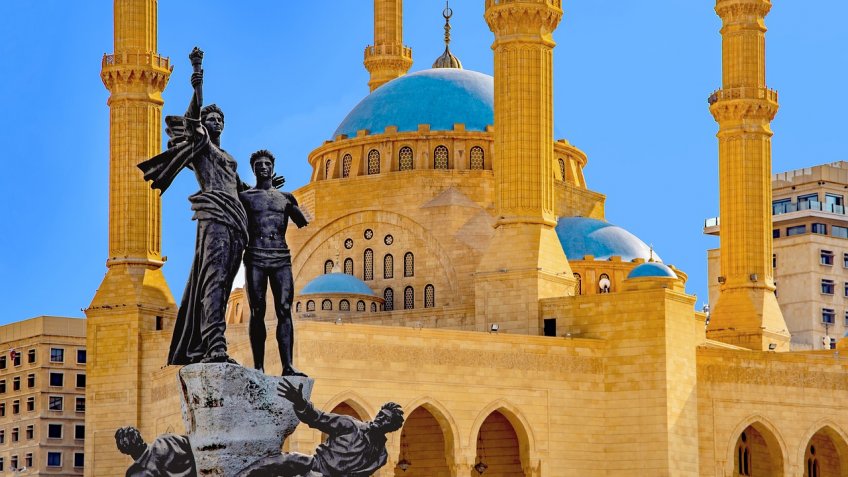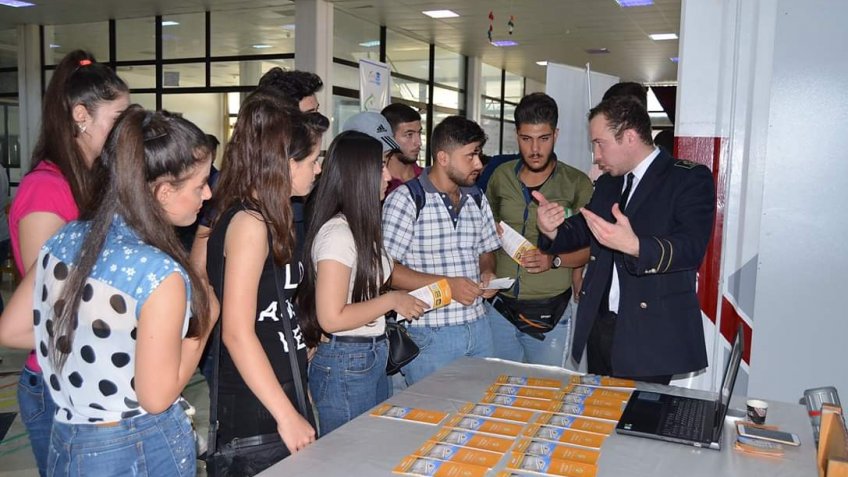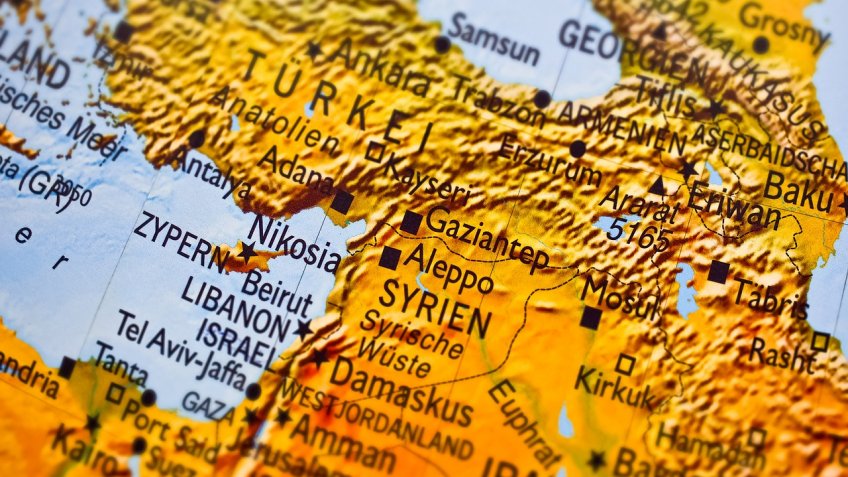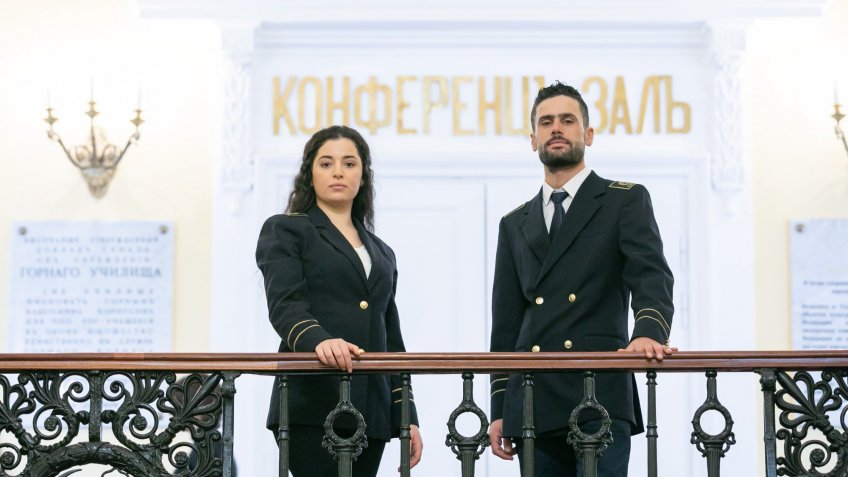
Beirut, Damascus, Latakia, Batroun, Tripoli - what would you think of when seeing the list of those cities? Most likely, the first things that spring to mind are military operations and counterterrorism efforts; Russians are not the exception and have similar thoughts. What do Syrian and Lebanese people think of Russia though - in particular, about higher education in the country?
This autumn, an exhibition "Russia – new opportunities in higher education" has came to its end. Through the course of it, representatives of 19 leading Russian universities visited the largest Syrian and Lebanese cities to present their universities. The event was organised by the Russian Federal Agency for the Commonwealth of Independent States, Compatriots Living Abroad and International Humanitarian Cooperation (in short: Rossotrudnichestvo), supported by the Embassies of the Russian Federation in the host countries. One of the tasks of Rossotrudnichestvo is to allocate quotas, according to which foreign citizens are provided with state-funded places in Russian universities. Each year 15 thousand scholarships are awarded, which compensate the costs of free tuition, staying at the dormitory and, if required, language courses - of those, 600 study places are given to students from Syria and 80 to students from Lebanon. Student selection campaign will start in December; those who do not pass examinations may still be accepted, but on a contractual basis.
As noted by Ayrat Erzin, the Head of International Relations Department at Saint Petersburg Mining University, ”The exhibition venues were so full they could hardly fit in all the people willing to learn more about study courses, entry requirements, accommodation conditions, residence permits required for foreign citizens, and future prospects provided by Russian higher educational system. The total number of visitors exceeded 6000 people. Such interest can be explained by high prestige of Russian higher schools, which is globally recognised, and adequate state of educational facilities”.
While there are many universities and colleges in Lebanon, there is only one public higher education institution. The tuition fees are relatively small - about $400 per study year. However, one university cannot fulfil the demand of the whole country. The cost of education in private institutions, in contrast, is much higher - tuition fees start at $7.000. Most high school graduates can not afford paying for education and decide to abandon their studies after all.
Studying abroad - particularly in Russia - is one possible solution. Moreover, it turns out that studying in Russia is much cheaper. For instance, annual transportation and accommodation fees of those students who were accepted at the Mining University under the quota system range between 625 to 1250 USD per year. The costs of paid education are significantly lower than in Lebanon as well - around $4.000 per one year.
The situation in Syria is obviously a bit different: there are four state-owned universities that provide free education, but the war, international sanctions, and economic downturn have inevitably affected their material and technical foundation; the quality of education is far from perfect as well. Therefore, young Syrians have no other study option but to go abroad.
Mohammed Aljadly, the Mining University’s student, explains”I graduated with a Bachelor's Degree in Syria and decided that I want to continue my studies. I was offered to choose from India, Iran or Russia. The choice was difficult, and I approached professors from my university for advice. All of them had graduated from Russian institutions and they suggested me applying for education in Russia - notably to St. Petersburg Mining University. Once I have completed my studies, I am planning to return home and become a university teacher. In our region, there are lots of oil and gas, but the quality of engineering education is almost critical. Given that education quality in Russia is much better, my aim is to learn as much as possible and acquire new skills in order to impart best practices in the area to the Syrian people. Hopefully, in the future we will be able to develop commodity sector of my country by ourselves".
As of 2014, proven oil reserves in Syria amounted to 2.5 billion barrels; the level of production in 2010 was equal to 386 thousand barrels per day. The exploitation rate fell though to 20 thousand barrels per day after most of the main oil fields were invaded by ISIS fighters. At the end of 2012, large oil deposits were found at the Syrian shelf area. Their estimated reserves amount to 37 billion tons. The development and exploitation of those fields could lift the country to the fourth place among the world’s oil-producing states, but peace in the region is required in order to ensure stability of investments in geological exploration.
Lebanon is currently in the midst of preparations for the launch of oil and gas production. The deposits were discovered in 2011 at the junction between territorial waters of Lebanon, Israel and Cyprus, and it is going to be the first time ever oil recovery for Lebanon. The off-shore oil drilling has already started this autumn, but exploration works at the Lebanese shelf are expected to last for five more years.
According to Vadim Zaichikov, Head of the Representative Office of Rossotrudnichestvo in Lebanon, higher quality of education - specifically of mining education - is becoming increasingly important in this day and age, therefore "studying in Russia is a great opportunity to receive an affordable and quality education and build one’s own future”.
Fatima Dirani, another student at the Mining University, added ”The University where I am studying is very well known for its advanced laboratories and research centres; the teaching staff is amazing as well. These are the reasons why I chose to study here. An adaptation period was not difficult either, as I have here everything I hoped for: modern dormitories, friendly environment, beautiful tourist areas. After graduating, I would like to come back home. For a long time, it was believed that there were no raw material reserves in my country. That is why training skilled engineers is a key issue for the mining industry of Lebanon”.


